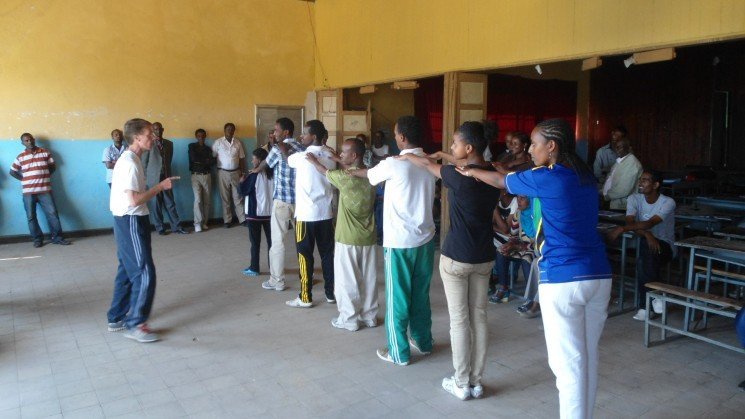Written by Shree Mandke & Julia Wathen
In Ethiopia there are an estimated 6.3 million disabled children, but only 60,789 are enrolled in primary or secondary school. Like disabled children all over the world they face barriers and challenges in gaining access to quality education. Often they experience a lack of understanding from the community about disability, and consequently, many disabled children are seen as a burden on poor families, and are hidden away from the wider community, local government and NGOs.
The Disability-Widening Access & Participation (DWAP) project aims to improve the quality of education disabled children receive by implementing more inclusive and accessible teaching methods. In Southern Ethiopia, the delivery of this project has begun and is off to a great start already!
So far 70 teachers who are directly in contact with children with disabilities from 18 schools in the South have received training. They have taken part in a two-day training course which is designed to raise the teachers awareness on the variety of disabilities that are experienced by some learners, and to enable teachers to ensure that their teaching is as inclusive as is practically possible. Teachers worked together in small groups making action plans for increasing inclusivity and accessibility in their schools, and discussed how to set up disability clubs.
Parents and guardians of children with disabilities have also received awareness raising training as part of the project. The workshop provided information and opportunities for those involved to share their experiences in caring for a child with disabilities. The training explored in detail specific types of disabilities and how these can affect teaching and learning, looking at solutions for overcoming some of these potential barriers to learning.
From the feedback, both the theoretical and practical aspects of the training have been rated very highly, and 94% of the teachers agreed that they would be able to implement the content of the training into their schools.
Such positive feedback is very encouraging and we are eager to deliver other aspects of the project which include:
- the refurbishment and creation of the Vocational Centre in Bishoftu for children with intellectual disabilities,
- training the trainers of the newly created Vocational Centre.
Look out for more updates and progress reports as the second phase is under way!
[photonic-smugmug-import type=’smugmug’ view=’images’ album=’qQJBh4′ layout=’random’]
